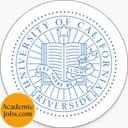Chief Audit Officer and Director, Internal Audit Division
About the Department:
NC State University, a leading public research (R1) land-grant university, is the largest university in the state of North Carolina and home to nearly 40,000 undergraduate and graduate students. Twelve colleges comprise NC State, with academics and research spanning a variety of disciplines, including engineering, agriculture, sciences, business, textiles, humanities and veterinary medicine. In Raleigh, NC State operates a 2,200-acre, 450-building Main Campus and also operates Centennial Campus and Centennial Biomedical Campus, providing state-of-the-art facilities for corporate, industrial and government partners working alongside university research and academic units - and a veterinary hospital with 24/7 emergency care. Additionally, NC State operates agricultural farms, research stations, nurseries and greenhouses, a research forest, and research and extension facilities throughout the state of North Carolina, with a presence in all 100 counties. A $2+ billion university enterprise with $2.3 billion in annual financial transactions, NC State employs more than 9,000 faculty and staff in service to its mission of advancing education, research and public engagement across North Carolina and beyond. As a preeminent public research university, NC State is recognized nationally and internationally for innovation in education, research, scholarship and engagement that solves the world's most critical challenges. NC State's research enterprise leads in big data, biomedical engineering, materials science, food safety, translational medicine and more; ranking 6th in research expenditures among public institutions without a medical school. NC State strives to be an "Employer of Choice" within a competitive region and was recognized by Forbes as a top large employer in North Carolina. The university's dynamic workplace culture depends on engaged, service-oriented employees and a vibrant, collaborative workplace experience.
Description of the Organizational Unit
The Internal Audit Division (IAD), led by the Chief Audit Officer, serves as an independent, trusted advisor to the NC State community in the identification, remediation and continuous monitoring of challenges and risks. IAD supports NC State's mission and advances NC State's strategic goals by serving as a partner to university leadership, faculty and staff in identifying and balancing risk through objective, flexible and proactive audit and advisory services. IAD consists of ten employees including audit managers for operational, information technology and investigative engagements; five staff auditors; and an executive assistant. For more information regarding the Internal Audit Division, please visit the website: internalaudit.ncsu.edu.
Essential Job Duties:
The Chief Audit Officer serves as the leader and advocates for matters relating to internal audit for the institution and works with colleagues to both balance risk and guide positive changes in support of the university's mission and strategic goals. The Chief Audit Officer leads the Internal Audit Division and is responsible for ensuring the division meets the expectations of and complies with the Internal Audit Charter as approved by the NC State University Board of Trustees and the NC State University Chancellor. The Chief Audit Officer also ensures compliance with the Institute of Internal Auditors' Global Standards and other requirements set forth by the UNC System Office and the State of North Carolina. The position has high visibility and institution-wide scope, covering the breadth of the entire university and its affiliates including all of the university's activities, assets, information in any form and personnel.
The Chief Audit Officer reports administratively to the NC State University Chancellor and functionally to the NC State University Board of Trustees through the board's Audit, Risk Management and Finance Committee (ARMF). The Chief Audit Officer communicates and interacts directly and independently with the ARMF. This positioning provides the organizational authority and status to bring matters directly to senior management and to escalate matters to the ARMF when necessary and without interference. Additionally, the Chief Audit Officer has informational reporting accountability to both the Executive Vice Chancellor and Provost and the Executive Vice Chancellor for Finance and Administration. The Chief Audit Officer has independent access to university leadership, faculty, staff, students, the UNC System Office and various other external constituents.
Oversight of the Internal Audit Function:
- Maintain compliance with North Carolina General Statute (GS) Chapter §116-40.7; NC GS Chapter §143 Article 79, The NC Internal Audit Act; and audit-related requirements from the UNC BOG and UNC System Office.
- Compliance to The Institute of Internal Auditors' Global Internal Audit Standards including the required standards of ethics and professionalism.
- Ensure a comprehensive risk assessment process to support the development of a risk-based audit plan and a risk-based approach to individual engagements.
- Consider the scope of work of the external auditors and regulators, as appropriate, for the purpose of providing optimal audit coverage to the organization.
- Submit, at least annually, a risk-based audit plan to the Chancellor and the ARMF for approval, implement that audit plan, and communicate any significant interim changes.
- Maintain an agile approach to the audit planning process including continuous re-evaluation and adjustment to the audit plan as needed.
- Communicate the impact of resource limitations on the internal audit plan to the Chancellor and ARMF, as appropriate.
- Keep the ARMF, Chancellor, and other appropriate leadership informed of emerging trends and successful practices in the internal auditing profession and develop and maintain a comprehensive continuous improvement and quality assurance process for IAD.
- Ensure appropriate and necessary interactions with the various external audit-related governance groups occur as needed.
- Coordinate and collaborate, as appropriate, with internal control and risk monitoring functions regarding areas such as risk management, compliance, security, legal affairs, environmental health, and external audits and investigations.
- Investigate suspected fraudulent activities and notify the Chancellor, ARMF and other management of any significant results.
- Perform advisory services, beyond internal auditing's assurance services, to assist management in meeting its objectives.
- Communicate as appropriate to the Chancellor, ARMF, and other management summarizing the results of audit or advisory activities.
- Follow up on engagement findings, confirm the implementation of corrective action plans and communicate the results to the Chancellor, ARMF and other senior management.
- Participate on various internal and as appropriate, external committees, compliance task forces, and system development projects.
- Educate the university community on university policies, state and federal regulations, best practices and the importance of effective internal controls.
- Promote the continued growth of internal audit staff through professional certifications, professional memberships and continuing education development opportunities.
- Maintain written policies and procedures to guide internal audit activity.
Leadership and Management of the Internal Audit Division
The Chief Audit Officer is responsible for the leadership and management of all the Internal Audit Division's activities including but not limited to assessing whether processes for governance, risk management and control are adequate, effective, efficient and that those processes along with management activities support the organization's strategies and objectives; operations and programs are being carried out effectively, efficiently, ethically, and sustainably; university units are compliant to university, UNC System Office, State, and Federal requirements; risks relating to the achievement of university's strategic objectives are identified and managed; established processes and systems are effective, efficient, and enable compliance; the actions of the university's officers, directors, management, employees, and contractors comply with policies, procedures, and applicable laws; policies, regulations, rules, and other guidance are consistent, effective, and foster quality and continuous improvement; and the integrity of significant financial, managerial, and operational information is reliable and timely.
Minimum Education and Experience Requirements:
As required under State Legislation (HB1401), the successful candidate will hold a bachelor's degree and a certification or licensure as one of the following: Certified Public Accountant, Certified Internal Auditor, Certified Fraud Examiner, Certified Information Systems Auditor, Professional Engineer, or Attorney; or hold a bachelor's degree and a minimum of five (5) years of experience in internal or external auditing, management consulting, program evaluation, management analysis, economic analysis, industrial engineering, or operations research.
Other Required Qualifications:
- Consistently demonstrate high initiative, self-motivation and dedication to the missions and goals of both the IAD and the university.
- Excellent interpersonal skills with the ability to cultivate strategic professional relationships.
- Exhibit realistic understanding of risk, issues, and potential mitigating or corrective actions.
- Able to develop unique solutions to problems and demonstrate new ideas within constraints.
- Ability to make timely, defensible decisions based on sound judgment.
- Flexible and able to effectively manage through ambiguity, changing environments, delays, and unexpected events.
- Experience leading an internal audit team in both assurance and investigative audit engagements related to the environment of an R1 land-grant institution or equivalent.
- Experience with IT auditing and strong knowledge of IT systems, data security, and information technology frameworks and regulatory requirements (e.g., CMMC, NIST, ISO).
- Experience with investigative auditing and strong knowledge of professional fraud investigation standards.
- Ability to stay abreast of current trends, emerging issues, and changes to legal, regulatory and compliance environments.
Whoops! This job is not yet sponsored…
Or, view more options below
View full job details
See the complete job description, requirements, and application process
Express interest in this position
Let North Carolina State University know you're interested in Chief Audit Officer and Director, Internal Audit Division
Get similar job alerts
Receive notifications when similar positions become available


.png&w=128&q=75)












